Articles about Analytics
Games UX Testing with Artificial Intelligence

Game developers gain insights from working on projects that use game evaluation tools supported by artificial intelligence. [Read More]
Best Practices for Asian Language Site Localization
Localizing your site for Asia may mean a radically different design, brand-new elements, or country-specific SEO. [Read More]
SUStisfied? Little-Known System Usability Scale Facts
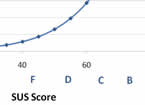
SUS will continue to provide a reliable, valid and quick measure of ease of use and average SUS scores may increase due to UX improvements. [Read More]
Bringing Stats Into the Office (Book Review)

A review of Improving the User Experience Through Practical Data Analytics by Mike Fritz and Paul D. Berger, which offers data analysis lessons in bite-size chunks. [Read More]
Diversify the Data in Data-Driven Design: Creative Pairings of Quant and Qual

Thinking critically and creatively about how you use data to drive design decisions will result in better experiences for users. [Read More]
Big Behavioral Data: The Key to Eliminating User Frustration

Big data can provide behavioral patterns from thousands of people. These patterns can be searched and indexed and used to identify usability issues and eliminate user frustration. [Read More]
Thinking Outside the Browse and Search Box: Big Data as a Complement to Navigation Design

Use big data and analytics to enhance traditional static navigation and intelligently anticipate the type of content that your users are trying to reach. [Read More]
A Civic View: Bridging the Gap between Citizens and City Government

An innovative civic data collection tool, Civic View combines video footage and GPS tracking to give citizens a more immediate voice in city government. [Read More]
Customer Feedback: Collecting In-Context Product Insights

Creating an effective customer feedback system requires an understanding of the data provided by analytics but also an understanding of the user and business goals. [Read More]
Understanding Motivations and Behaviors: User-centered Analysis of MOOC Participation
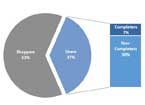
Analysis of participation in online courses showed different patterns, and suggested design changes to motivate students to complete the course and get more out of the experience. [Read More]
Online Learning Environments: Design in the Age of Big Data

When e-learning tools also learn from students, they create personalized experiences that make learning fun and effective. [Read More]
UX Advocacy in a University Context: Strategies and Tactics for Multiple Stakeholders
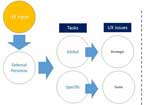
Designing university websites presents a complex set of challenges. Being methodical in identifying internal and external users, and understanding operational, tactical and strategic considerations is essential. [Read More]
Visual Analytics: Uncovering the Why in Your Data
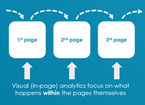
Traditional web analytics can be difficult to translate into decisions. Visualizing analytics data provides insights into users’ behavior and removes opinions from the design process. [Read More]
Personal Health Metrics and Good UX: Partners in Healthcare

To ensure healthcare programs and applications that use personal metrics are effective in helping people improve their lives, focus on the user experience. [Read More]
Making the Case: Rounding Out Usability Testing with Web Analytics
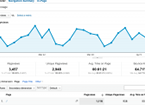
Using qualitative data, you can plan usability tests and analyze test results by reviewing where users currently go on your site. [Read More]
Another Research Tool (Book Review)
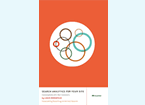
A review of Search Analytics for Your Site by Louis Rosenfeld.
Insights about SSA in a practical, straightforward, and enjoyable, with real-world examples. [Read More]
Power in Numbers: Measuring Usability with Web Analytics
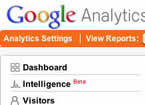
Web analytics provide usability professionals working with websites an opportunity to gain deeper insight into their users and communicate the value of their work. [Read More]

